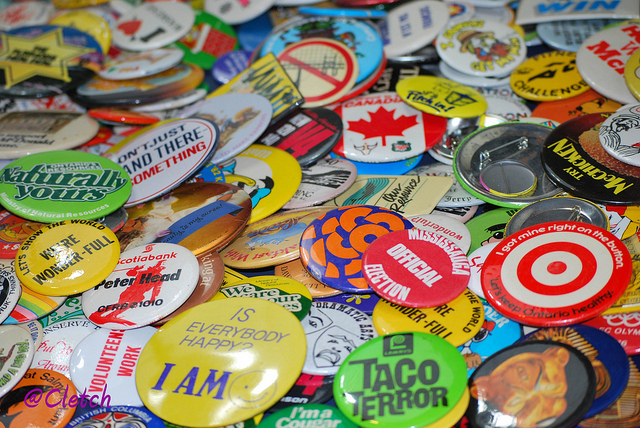
7 Phrases to Use Carefully
Every word we speak is important. Scripture reminds us on a regular and consistent basis to be careful about what we say. James makes the point abundantly clear that our tongues cause us to sin and break fellowship with others far too often, but that we must continually strive to control our words (cf. James 3:1-12).
So this post is not meant to say that we should be on guard only when we use these words and phrases. Instead, it it meant to show that there are some words we use far too flippantly, without thinking of the implications. Here are just a few.
1. “I love you.” Christians should tell others they love them often, but we need to be very careful about how we say those words. We need to realize that, to someone who is vulnerable, those are loaded words. Often, they are said just to get something from someone. Instead, those words should be a gift to someone, expressing an emotion and connection that deserves those strong words.
2. “I forgive you.” Yes, we should have a forgiving heart. Bitterness is a major problem (even a sin, see Ephesians 4:31), and having a heart that refuses to forgive leads to loads of bitterness. However, we do not need to throw around this phrase unless we are truly forgiving someone. Just saying it does not make it so. Saying “I forgive you” without truly forgiving is lying.
3. “We’ll be praying for you.” Let’s be honest, how often do we tell someone that we’ll pray for them, then we don’t? I’m not saying we should avoid praying for each other. Perish the thought! Instead, we should only say we will pray for others if we are going to do so. If you use this phrase a lot, you need to have a prayer list, so that your words are backed up by your petitions.
4. “It was God’s will that [whatever] happened.” Please do not use these words unless you really know that it was God’s will. Far too often, they are used in times of grief, saying that “It was God’s will” that someone’s child died or that someone’s house was destroyed by fire or storm. It may have been God’s will, but rarely do we know that. Saying something tragic was God’s will could result in someone turning away from “a God who would do such a thing.”
5. “We’re a conservative congregation.” I’m not going to elaborate here, except to say that every congregation claims this. Be wary if someone uses this phrase with no explanation whatsoever.
6. “I’ve just been so busy.” You may have been, but doing what? If you are just busy because you are running from playing on one ball team to playing for another, and you’re trying to fit in a movie night in there, you can control that! Now, if you are working long hours to finish a project, and trying to be a good parent in going to meetings at school, and (of course) staying involved in the work of the Church, that’s different.
7. “I’m fine.” Isn’t that the default Christian answer to the question, “How are you?” When someone says they are “fine,” I get concerned. Usually, that’s our “Christian” answer that means, “I’ve been better, and things aren’t going so well, but I’m in the Church building, so I have to give a positive answer.” How sad that we have to put up a guard like that. Christians need to be honest around one another. We are family!
———————————-
What are some phrases you think we use that we might need to guard a little more?




3 Comments
Lane
I just did a sermon this past Sunday on a very similar topic to points #3 and 7, entitled “To Tell the Truth”. Its funny how the Pharisees found loopholes to keeping their oaths based on Matthew 5:33-37, and we continue to do the same thing with our words as well. When we say “I’ll pray for you” with no intention of doing it, or if someone asks how we are, and we say “I’m fine”, but really aren’t, we’re doing the same thing.
Jesus demands for us to be truthful, because HE is TRUTH!
Pingback:
Steven Hunter
Very good. I especially liked 3.